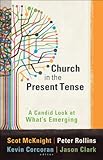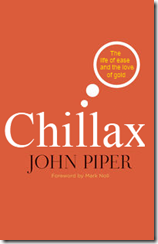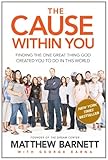 It has been some time since I last blogged on the emerging church, but this book caught my attention for a couple of reasons. First, the Kindle edition is free on amazon.co.uk, and second, it contained a couple of essays by Scot McKnight, whose blog I follow. It is a collection of two essays each by four authors who are sympathetic to the “emerging church” movement to various degrees.
It has been some time since I last blogged on the emerging church, but this book caught my attention for a couple of reasons. First, the Kindle edition is free on amazon.co.uk, and second, it contained a couple of essays by Scot McKnight, whose blog I follow. It is a collection of two essays each by four authors who are sympathetic to the “emerging church” movement to various degrees.
Kevin Corcoran provides the introduction, giving a brief overview of the history and values held by the emerging church, before providing the opening chapter in which he argues that “commitment to ecumenical creedal formulations and to concrete Christian beliefs is in no way incompatible with or inimical to epistemic humility or other distinctive features of postmodernity prized by emerging Christians, such as the deep conviction that our grasp of reality is always partial, incomplete and provisional.” So he argues against the need to accept “anti-realism”. So far so good.
Corcoran’s second essay deals with eschatology, highlighting the strongly “kingdom now” approach of emerging – the kingdom has been inaugurated, even if it is not fully here yet. “Heaven is here and now” and future life after death is deemphasised. He discusses pluralism (the idea that God may work through people of other religions even though salvation is only through Christ) and univeralism (with hell as a possible intermediate but not final destination). I could only find myself in agreement with parts of this essay. The “kingdom now but not yet” emphasis is a helpful one, but is not unique to the emerging church in any case, with (for example) Vineyard and charismatic groups also emphasising this for many years now.
Peter Rollins provides a rather complex chapter, drawing on Nietzsche and ostensibly Bonhoeffer (“a religionless Christianity”) to describe a way of being Christian that will seem virtually unrecognisable to most evangelicals. For him Gal 3:28 contains an idea that he can press to the point of obliterating all distinctions so there is now “neither orthodox nor heretic, neither gay nor straight, neither Christian nor non-Christian”.
His second essay is more accessible, in which he points out that many of us can maintain a difference between our belief and practice so that it is not experienced as a conflict at all. Again he draws on ideas from Nietzsche and proposes an idea he calls “transformance art” in which we enact the death of God, and then the resurrection of God. It sounds radical but his only concrete example was churches meeting in pubs, coffee shops or art galleries, so it left me confused as to exactly what he was proposing. Unless I have badly misunderstood him, I would say that Peter Rollins represents the extreme end of the emerging movement that is so radical in its deconstruction that it has lost touch with orthodox Christianity.
Jason Clark is another blogger I have followed for some time, and his essays focus on liturgy. The first is on “Consumer Liturgies and their Corrosive Effects on Christian Identity”. This is a gem of a chapter with lots of food for thought.
With its demands on how we organize our lives, consumerism is a jealous god, not allowing our souls and bodies to be located in any other relationships, especially the body of Jesus, his church.
He critiques “blueprint” ecclesiologies (including several missional/emerging ones), and argues instead for “deep church”.
The future of church resides with those who, though critical, are nonetheless devoted to living within it.
His second chapter documents his journey from low church to an appreciation of a more liturgical form of worship, and describes the “flow” program his church has started although sadly there was not quite enough information to get a real feel of what exactly this involves.
Finally, Scot McKnight weighs in with two more theologically oriented essays. The first is on Scripture. He outlines five unhelpful ways in which we tend to approach the Bible, all of which evangelicals are frequently guilty of. He then discusses the limitations of language to truly communicate theological truth, which move him in the direction of the ‘apophatic‘ approach of Eastern Orthodox. I partially agree with him here, but I think he goes too far when he calls the Bible a “dim” witness to the ultimate (presently) unsayable truth of God. The logic is that if the Bible is “dim” then how much our flawed interpretations?
He moves on to describe the Bible as an ongoing series of “midrashes”, or interpretive retellings of the one Story God wants us to know and hear. There is no one fixed and final form of this story. It is the story of Moses and David and Jesus and Paul and James. To make it even just the story of Jesus and force the other stories to fit would do violence to the depth and breadth of the gospel story. The benefit of this approach is that it avoids complaining (for example) that Paul doesn’t speak of the kingdom enough, or that Jesus doesn’t speak of justification enough. We don’t need to force them together, but realise that these two tellings of the story are both needed for a fuller grasp of the big story. I found this an interesting essay, but it certainly raises some unanswered hermeneutical questions.
McKnight’s second contribution is on atonement and he takes Reformed believers to task for making the “gospel” about soteriology. We focus on “penal substitution” and “double imputation” and “propitiation”, and therefore the gospel is about my guilt and how it is solved through the gift of righteousness, and about God’s wrath and how it is solved through the substitution of Jesus. Without outright rejecting these ideas, McKnight suggests that the verses supporting imputation are at least ambiguous, and in any case, a survey of the apostolic teaching in the book of Acts reveals that their presentation of the gospel does not revolve around these concepts. I suspect that the material here summarises McKnight’s book “The King Jesus Gospel“, which I would very much like to read. What drives the sermons in Acts is the OT story finding its solution in Jesus’s story, and they focus very strongly on the resurrection, with the climax being that Jesus is Messiah of Israel and Lord of all. So the “problems” that the apostolic gospel addresses are death and the world’s need for a king, and the “solutions” are the resurrection and the Lordship of Christ. Overall I would agree with McKnight that where we make the “gospel” merely about soteriology, we have truncated the much fuller apostolic message.
In summary, I would say that this collection of essays is interesting in places, and concerning in places. If you have a kindle, it is worth getting even if just to read Jason Clark’s first essay and the two Scot McKnight essays.









